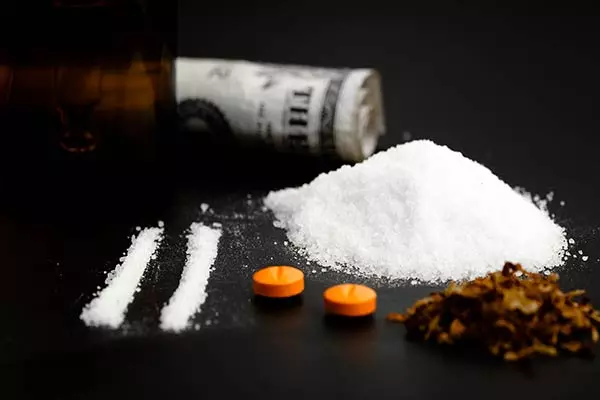Benzodiazepines are a type of Central Nervous System depressant medication. They are prescribed to help alleviate symptoms of anxiety, depression, insomnia, muscle spasms, as well as for other medical conditions or instances that cause stress or fear. The positive effects that Benzodiazepines also referred to as ‘Benzos,’ cause is relaxation, sedation, and sleep. The adverse effects that Benzos can cause are impairment, memory problems, addiction, and dangerous physical withdrawal symptoms that include seizures. Any person who is attempting to increase the effects of a Benzo by mixing other drugs or substances with it is likely to be suffering from Substance Use Disorder (SUD), also referred to as an addiction. While benzodiazepine potentiation is possible, once you’re searching for a stronger effect, it may mean that you’re addicted. Professional medical detox is needed to safely get off benzo and begin the process of recovery. 
Dangers of Benzodiazepine Potentiation
The brand names for the most common Benzodiazepines include Xanax, Valium, Ativan, Klonopin, and Librium. When someone is attempting to increase the effects of any of these medications, this is known as Potentiation (potentiate)- which is to increase the drug’s potential for desired results. The danger with potentiating Benzos is that most people will use other central nervous system depressants to achieve their desired effect or ‘high.’ Combining CNS depressant drugs can very easily cause accidental overdose and death. Substances and drugs that depress the CNS which are frequently used by individuals with a SUD or abusing substances to potentiate a Benzo are alcohol, all opiates such as heroin, Fentanyl, methadone, and prescription pain killers (Vicodin, Oxycontin, morphine, etc.), as well as marijuana and cannabis products. Other drugs and medications that potentiate Benzos are barbiturates, Z-drugs, antihistamines, and herbal remedies. Although these drugs and substances do not depress the CNS, they do act on similar structures in the CNS that Benzos also affect. However, the most common substance that a person will use to potentiate the effects of a Benzo is alcohol. Alcohol is easier to acquire versus other drugs like heroin or more Benzos, and it has long held a reputation as being popular to mix or enhance the effects of other substances or drugs, generally. What is dangerous when a person consumes alcohol with a Benzo such as Xanax (and others) is both drugs slow down reactions, impair speech and vision, as well as directly affecting heart rate, respiratory function, and judgment. Fatal car accidents are common when people mix alcohol with Benzos, as are accidental overdoses.
Mixing Opiates and Benzos: Know the Risks
Another potentiator that is popular among persons who are abusing Benzos is opiates. The risks in doing so far outweigh the desired effects, as this is one of the leading causes of accidental overdose, leading to death in the United States. According to the National Institute on Drug Abuse, NIDA, opiates, and Benzos combined increased the accidental overdose death rate hugely in 2015. NIDA also indicates that there is a significant number of people who are prescribed both Benzos and opiates together, exasperating the potential for overdose and accidents.
More than 30 percent of overdoses involving opioids also involve Benzodiazepines… Combining opioids and Benzodiazepines can be unsafe because both types of drug sedate users and suppress breathing—the cause of overdose fatality—in addition to impairing cognitive functions. In 2015, 23 percent of people who died of an opioid overdose also tested positive for Benzodiazepines. Unfortunately, many people have prescribed both drugs simultaneously. (NIDA)
One type of non-CNS depressant drug that people take to enhance the effects of a Benzo is Z-Drugs. These drugs sedate a person and are most commonly prescribed for sleep disorders and acute insomnia. They include Zolpidem (Ambien), Eszopiclone (Lunesta) and Zaleplon (Sonata), and others. Other medications that also cause sedation but are not CNS depressants include antihistamines with sedating properties (also known as first-generation antihistamines). For example, Diphenhydramine (Benadryl) and Dimenhydrinate (Dramamine).
Benzodiazepine Potentiation with Herbal Remedies
Another way a person will potentiate a Benzodiazepine is by taking herbal remedies. Two herbal remedies have become well known for their sedative effects, Valerian and Kava. Combining either of these two herbal remedies with a Benzo is likely to cause a person to feel extremely sleepy and lower their judgments and ability to drive or think clearly. Although many companies that manufacture both of these herbal remedies provide warnings for it not to be combined with Benzodiazepines, alcohol, or other drugs and medications, they are frequently used for the sole purpose of enhancing the effects of another substance. Potentiation of Benzos is not solely to increase the potency of the Benzo. Many persons who struggle with addiction or drug abuse will take Benzos to potentiate the effects of heroin, prescription pain killers, and other drugs. Regardless of what an individual is using to enhance the effects of their Benzodiazepine, or vice versa, the predominant problem is that this person is abusing substances to get high. This indicates addiction. If you or a loved one is experimenting or using multiple drugs to enhance Benzos or using Benzos to enhance (potentiate) the effects of other drugs, Evoke Wellness at Miramar has options for treatment.
We are Here to Help
We at Evoke Wellness at Miramar, offer specialized drug addiction treatment programs that include therapy and programs that target potentiation and multi-drug use addiction. We offer programs for men, women, and young adults. Contact us around the clock if you or a loved one are searching for benzodiazepine addiction treatment in a safe and comfortable environment.


